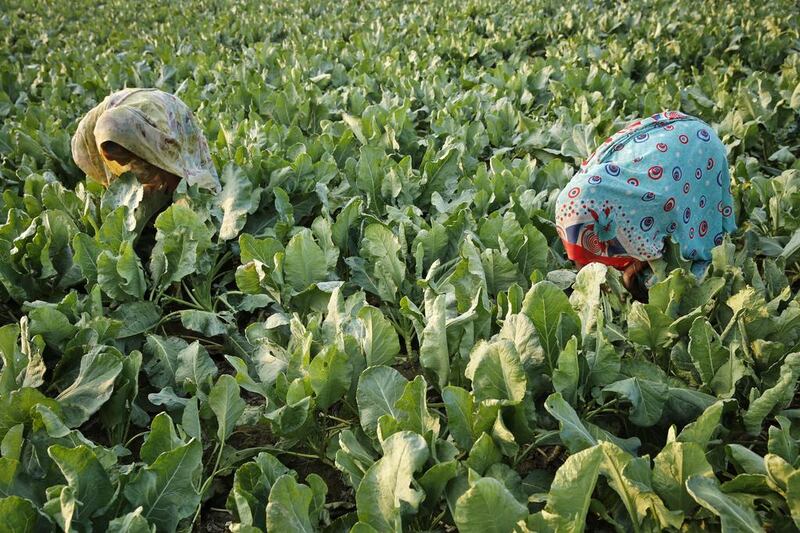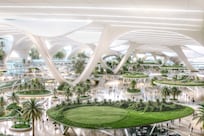Bahrain has been a resilient economy and a leading financial centre in the Arabian Gulf and wider Middle East for decades. Its financial services sector has been part of the country’s successful journey of economic diversification, and is the second-largest contributor to the national economy after hydrocarbons.
Sustainability is increasingly at the heart of the Bahrain’s banking sector, in line with the country’s economic priorities and international development inititaives.
Bahrain has signed up to the UN's Sustainable Development Goals (SDGs), and, like any other nation, has started its internal processes to implement these goals as a service to the country’s economy, in a manner that is aligned with its social and economic conditions.
Creating jobs, funding small and medium-sized businesses, supporting innovation, and promoting entrepreneurship have been some of the key areas in which banks have been part of the process in achieving the Economic Vision 2030 for Bahrain.
Launched in 2008, Bahrain’s Vision 2030 aims to develop a diverse and globally competitive economic base in the country, enabling the country’s broad middle class to enjoy a higher quality of life. Sustainability is set to be one of the key underlying values for realising the country’s economic vision. Funding environmentally friendly and socially sustainable projects is therefore a natural way for the banks to contribute to Bahrain’s future growth and development.
The Global Sustainable Finance Market
Customer demand for sustainable banking and finance is increasing around the world. As the best practices for sustainable finance continue to develop globally, a number of large global financial institutions are already enhancing their portfolio composition with sustainable assets, developing sustainability-related products and services, applying internal energy and waste management policies, and using newer tools such as environmental risk management.
As a result of such measures, banks with clear sustainability commitments are witnessing improvements in their risk and operational management practices, and are therefore likely to stay ahead of the competition in embracing the future of the financial services industry.With more countries following the example of Bahrain and others in implementing deeper sustainable development strategies, banks around the world stand to benefit.
The Business and Sustainable Development Commission estimated last year that achieving the SDGs will open up $12 trillion of market opportunities in areas of food and agriculture, cities, energy, materials, health and well-being. The Global Commission on the Economy and Climate estimates that $90tn worth of sustainable infrastructure will be required in the coming 15 years, with 60 per cent of these investments required in for energy and transport. Roughly two thirds of this infrastructure demand will come from the global South, translating into roughly $4tn of infrastructure spend every year.
_______________
Read more:
Dubai building Dh2.5 billion facility to convert rubbish to electricity
Entrepreneurs find the sustainability market ripe for innovation and profit
_______________
Other innovations that are leading the financial markets to help bridge the sustainable infrastructure gap are green bonds, as the climate-related projects are a major part of sustainable finance. Total green bonds issuance during 2017 topped $155 billion, a 78 per cent increase from the adjusted issuance of $87bn during 2016. The Climate Bond Initiative predicts that during 2018 green bonds issuance could be up to $300bn. Banks and financial institutions have been at the forefront to facilitate the growth of green bonds.
Sustainable Finance and the Middle East and North Africa region
There is already a great momentum for sustainable infrastructure within GCC, especially Bahrain, with future projects in the region more likely to be more sustainable development-focused. This could be a significant factor, as the Arabian Gulf countries are building huge new infrastructure projects and the six-member economic bloc as a whole is expected to spend around $288bn between 2017-2020 on these projects, according to an estimate from projects tracker Venture Onsite.
Bahrain has in recent years been developing new projects and upgrading its existing infrastructure across a wide range of sectors. The strategically significant large-scale investments currently underway are valued at over $32bn, with $15bn of the projected funding is earmarked by the private sector, for projects that social housing, healthcare, transportation and energy.
Sustainability is at the heart of both public and private sector projects, and Bahrain has developed its national action plan with a view to achieving the UN's SDGs. The country’s Ministry of Energy is working on renewable energy projects at the national level. Tamkeen, Bahrain’s flagship development finance institution, is working to encourage entrepreneurship around renewable energy solutions and other innovations for sustainable development.
The Ministry of Housing is building new communities under its social housing program, to add to the continued efforts toward sustainable development. The Supreme Council of Environment is developing sustainable and climate-related strategies for the country.
Bahrain is not alone in push for sustainable development and financing push to achieve the goal. New initiatives are emerging across the broader Middle East and North Africa region, as countries such as the UAE, Jordan, Morocco introduce their own green finance initiatives to help bring about a systems-level change to accommodate the climate-related economy.
The Banks in Bahrain
The recent rise of sustainable banking and finance globally, coupled with Bahrain’s focus on sustainable infrastructure, provide the right momentum for the banking and financial services sector in the country to prioritise sustainable finance.
The Bahrain Association of Banks has already established a permanent committee to examine how the banks in Bahrain can contribute more to achieving the country’s strategic goals of sustainable development. More than 14 global, regional and local lenders are represented on the committee, which recently completed a policy paper for regulatory considerations for sustainable finance in the country.
The recommendations include proposals for legal and regulatory framework, and also underlines global best practices financial institutions in Bahrain can adopt in order to play a leading role.
Bahrain’s banking and financial services sector has every reason to keep up with the growing dynamics of financing sustainable energy, transport and other infrastructure projects - an unprecedented opportunity for them to add another source of profitability to their businesses.
Adnan Ahmed Yousif is the chairman of the Bahrain Association of Banks, and president and chief executive of Bahrain's Al Baraka Banking Group
Ali Adnan Ibrahim is the chairman of the sustainable development committee at the Bahrain Association of Banks, and first vice president and head of sustainability & social responsibility at Bahrain's Al Baraka Banking Group






